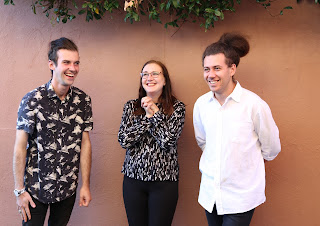EDITORIAL
Behrouz Boochani describes it as something like the obliteration
of personhood. The words he uses are the “extermination of the self”. He says
this is a type of erasure – that the system of detention and deprivation on
Manus Island exists with “the objective of distorting your sense of self so you
forget that you are human”.
Boochani wrote these words before Salim Kyawning was found dead.
Kyawning was a Rohingya refugee, the 14th person to die in offshore detention.
It fell to a charity to tell his family of his death. The Home Affairs office
had not bothered. It put out a single line statement: “This is a matter for the
PNG government.”
Australia has given up entirely on the men on Manus Island. It has
no plan for them. It doesn’t care how they leave: whether they are resettled or
refouled or sent home in bags. This was the suicide of a man transformed by
cruelty into a non-person. He was killed by the instruments of Australia’s
border protection policy.
The moral twilight of this system once asked whether it was worth
saving a man from drowning to watch him die by his own hand. No longer does it
bother. No longer does the government seem to care. While friends attempted to
make sense of Kyawning’s death, the government leaked details of his case
history to The
Australian. The story ran with the headline “Mentally ill refugee
‘had violent history’ ”.
Boochani, an imprisoned writer, the voice of Manus prison, said he
held special sadness for the fact Peter Dutton said nothing about Kyawning’s
death. “He couldn’t even be bothered to make up a lie, as he always does. The
media is also deliberately silent about this tragedy.”
Boochani asked how many people should die before Australia offered
medical assistance to the men it has abandoned on Manus Island. “Salim was a
father of three. A Rohingya man who escaped genocide and prosecution, endured
five years of prison and illness, but lost his life to Australia’s cruel offshore
processing regime. A tragic ending. Then Australia has a seat in UNHRC. Strange
world we are living in.”

Perhaps nations do not have souls. If they do, Australia’s is
hopelessly stained. Not just with the blood of these men, but with the
indifference to it.
Australia is involved in a legal fiction over its responsibility
to the people held on Manus and Nauru. It is a game of make-believe, a terrible
one, in which people are dying, in which people are being tortured, have been
assaulted and abused, in which childhoods have been stolen and lives taken.
Some months ago, Australia decided it was not playing any longer.
It pulled down the buildings. It took back the doctors and the medication. Like
a child, it got bored.
That is what killed Salim Kyawning: a country’s boredom at his
fate. It will keep killing people like Kyawning until every last refugee and
asylum seeker on Manus and Nauru is brought to Australia and offered the safety
they deserve. That is the only end to this horror.
Then will come the inquiries, the commissions, the apologies, the
dawning of a national shame. First, though, these people must be brought here.
Malcolm
Turnbull
(02) 6277 7700
(02) 9327 3988
Bill
Shorten
(02) 6277 4022
(03) 9326 1300
Lifeline
13 11 14
This
article was first published in the print edition of The Saturday Paper on May
26, 2018 as "Dutton’s moral twilight". Subscribe here



